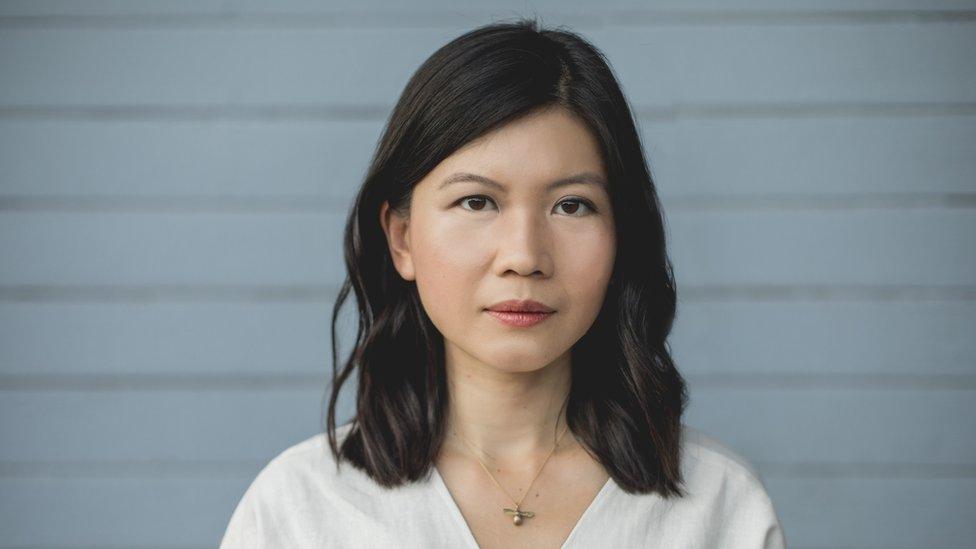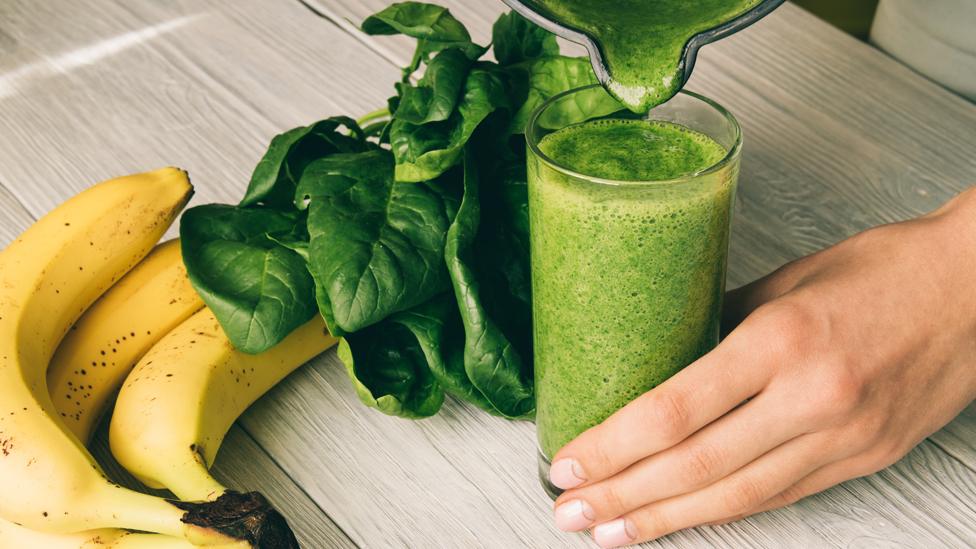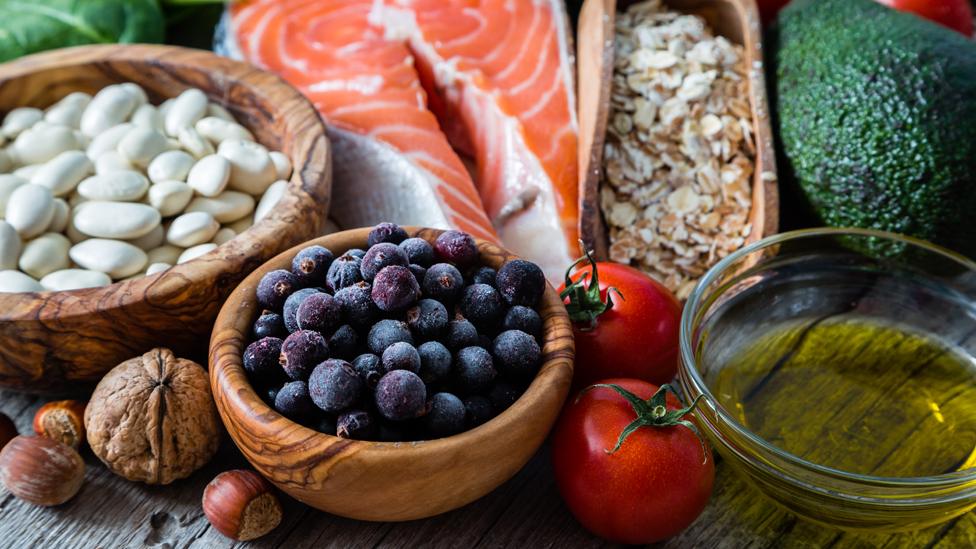Suicide Club: What if burgers and beer were illegal?
- Published

Rachel Heng is the author of Suicide Club
Imagine living in a society where spin classes, quinoa salads and green juices were enforced as law by the government.
For Rachel Heng, her job working in London's cut-throat finance sector made her feel like she was living in that world.
Gone were the days of hard drugs and partying, replaced instead with protein shakes and treks across the arctic.
This has inspired her debut novel, Suicide Club, exploring life in a dystopian society where living forever is the ultimate goal.
She tells the BBC that "wellness culture" has become a "moral imperative".
Born in Singapore, the 30-year-old studied Comparative Literature at Columbia University in the US, before moving to a private equity firm in London, which was a complete culture shock after such a relaxed university life.

Clean eating is hugely popular on social media
She says she had to "work hard and exercise hard" and that the pressure to compete on a professional level extended into what she chose to eat and how she spent her free time.
"In life now there's this sense that 'you need to do this to be healthy' and if you don't then you are failing in some way.
"If you take that to its logical conclusion then it means for people who become unwell, it's their fault for not taking care of themselves."
Allow Instagram content?
This article contains content provided by Instagram. We ask for your permission before anything is loaded, as they may be using cookies and other technologies. You may want to read Meta’s Instagram cookie policy, external and privacy policy, external before accepting. To view this content choose ‘accept and continue’.
Heng's novel, which she says is inspired by George Orwell's 1984 and Margaret Atwood's The Handmaid's Tale, follows life in a future New York, where a group of people have been genetically identified as possessing the ability to live forever.
Through a series of physical improvements and strict diet and exercise regimes, the "lifers" are given better social statuses and lifestyles in exchange for never eating junk food or drinking alcohol.
For Heng, she sees this society as something we aren't far from - referencing the way success is equated to looking good and living an extremely healthy life - at least in the online world.
"Social media has made people become obsessed with posting perfectly framed, curated and airbrushed pictures," she says.
"We have always been obsessed with youth, perfection and beauty but we're finding new ways to make that more and more dystopian - that definitely played into the book as well."

"Lifers" in Heng's novel can only eat food which enhances health
How much of a stretch would it be then to take this idea of looking youthful to being forever youthful? Not much, according to Heng.
"Living forever is a really primal drive," she says.
"We all have this fear of death because of the way it's framed in society as a taboo subject.
"To me, living forever is taking it back to the extreme, seeing what would happen and if it's what we really want."
The book also deals with what she thinks is society's "narrow view of success" - having a great partner and a great job, which are still the most important parts of central character Lea's life, despite her incredible physical capabilities.
Heng says the decision to make this such a central part of the book comes from observing life now - as we live longer, we need "more and more accolades to prove our worth".
Life landmarks 'getting 'later'
"Our parents' generation didn't all go to university and now everyone does, but it still doesn't necessarily mean you get a job, you then need a Master's Degree so it gets worse and worse.
"Because of technology advancing, we thought we would no longer need an eight-hour working day, but that hasn't happened, we've just created more work for ourselves and if anything we're working harder than we ever did."
She says that major life landmarks, like getting married, are getting later - "pushing out in proportion to length of life."
"When my grandmother was 16 she got married and now I'm 30 and I've only just got married, she says.
"Its now pretty natural to do things differently to what your parents did, but with that sheer amount of time, if you were alive for that long could you imagine staying in the same job for 200 years?"
Suicide Club is out now.

Follow us on Facebook, external, on Twitter @BBCNewsEnts, external, or on Instagram at bbcnewsents, external. If you have a story suggestion email entertainment.news@bbc.co.uk.
- Published12 April 2017

- Published23 July 2012